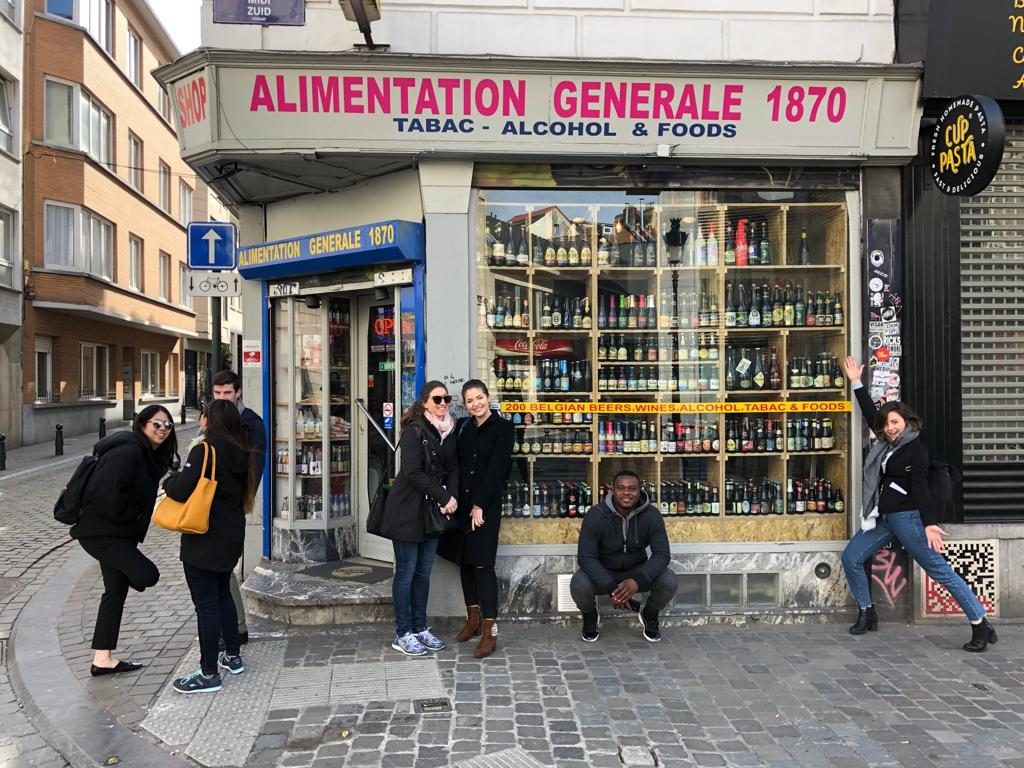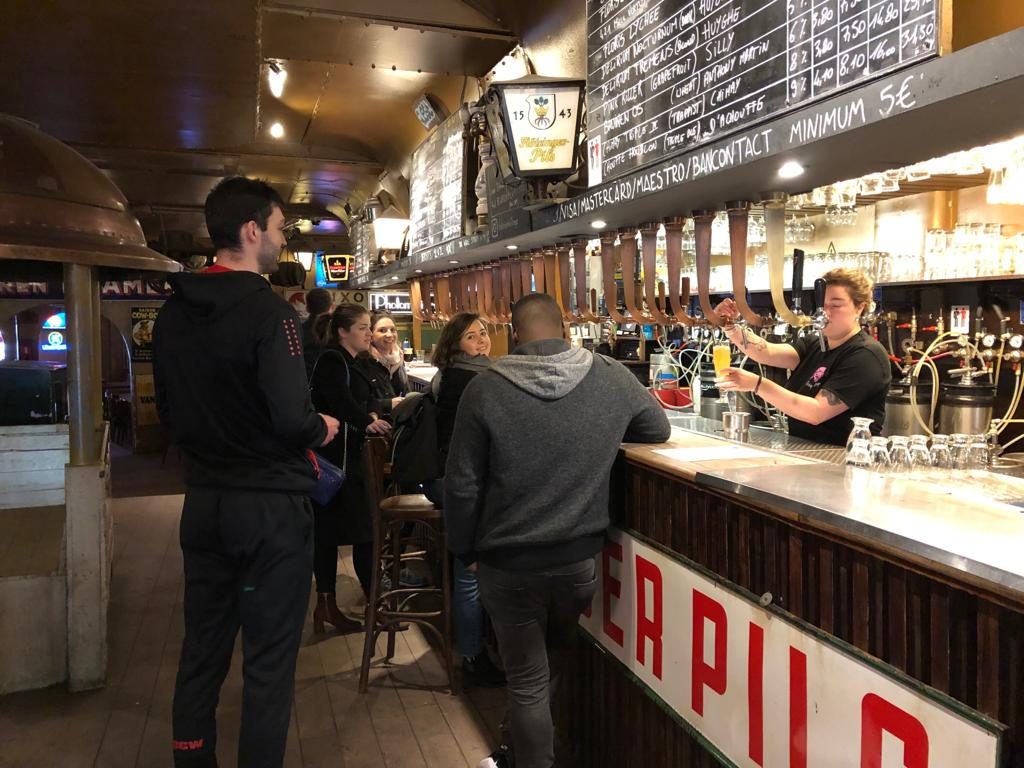Beer brewing in Brussels dates back to the 12th century and is therefore very incarnated in Brussels DNA. The beer drinking culture has even been recognized by the UNESCO as an „Intangible Cultural Heritage of Humanity “. Brussels is the home of many breweries and has seen a rise in innovative craft beers. Brussels breweries produce over 1,000 different types of beers, which have contributed to a very diverse beer industry in Belgium. Since craft breweries have been on the rise globally, the demand of such beer in Belgium has grown and helped establish many more microbreweries. Belgium today has over 230 craft breweries that produce some of the best craft beers worldwide.

During our study-trip we had the opportunity to experience this rich beer culture ourselves. Interested whether a Swiss craft beer brand would be successful, we gathered insights from locals and tourists. The interviewed Belgians are all very proud of their beer and prefer drinking Belgian beer instead of any other due to the perceived high quality of the beer. On the other hand, internationals mostly prefer beer from their own country. In general, quality is highly important and outweighs the price. Most tourists are willing to try Swiss beer while locals are more hesitant to do so. Both of them mostly associate Switzerland with chocolate, mountains, snow, and cheese. However, neither of them was aware that Switzerland produces quality beer.
Additionally, the local corner stores have a wide range of Belgian beers with only a few well-established international brands such as Heineken and Corona. However, for people looking to try international beers, well-known local bars can be visited while smaller bars mostly concentrate on offering Belgian beer. A well-recognized local bar has had a Swiss beer in their selection but stopped selling it. Conclusively, the biggest threats for the establishment of Swiss craft beer are competitors such as Westvleteren, Chimay Bleue, and Cantillon. When entering Brussels, Swiss beer would need to be adapted to local preferences. Women tend to prefer fruity and light beer, whereas men tend to stronger and fuller beer. For this reason, Swiss craft beer brewers should use a differentiated strategy for the gender in Brussels.

To conclude, demand for the Swiss craft beer would exist yet to a certain extent in the short-term. Moreover, Switzerland has a positive reputation for quality products, which could be helpful when introducing a new product. On the contrary, since Brussels has many existing craft breweries, the market is highly competitive. For this reason, it would be difficult to change the buying behaviour on the market in Brussels. Introducing Swiss craft beer in the Brussels, would therefore not be an easy journey. The Brussels beer is strongly dominating its local beer market and “foreign beers have had little to no success so far” according to Jean-Louis Van de Perre, expert in the Belgian beer market. Therefore, a market entry for Swiss craft beer in Brussels is not recommended.
Andrija, Emanuel, Juanita, Patricia, Prince and Selma


